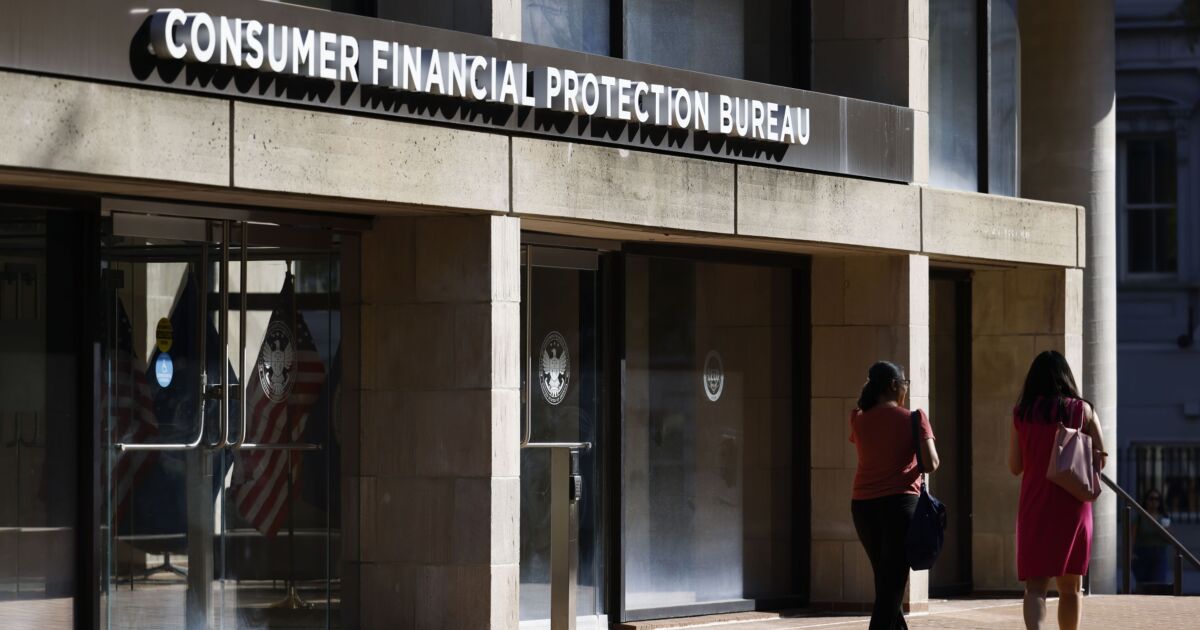
A day after
On March 8, the
While not able to speak to the specifics of the posting, nor about any possible actions the regulator might take, the Community Home Lenders of America "is thrilled that they're jumping into this," Scott Olson, its executive director, said in an interview.
"We've actually used this phrase [junk fees] ourselves a couple of years or so ago" he said in regards to click fees lenders are charged by third party vendors, which are passed on to consumers.
Others in the industry had a hard time understanding where the CFPB was coming from.
"The CFPB's blog post is baffling and reveals little understanding of how the mortgage market works or awareness of its own regulations that provide for full fee transparency and limits on what can be charged," Bob Broeksmit, president and CEO of the Mortgage Bankers Association, said in a lengthy statement.
"The fees mentioned are clearly disclosed to borrowers well before a home purchase on forms developed and prescribed by the Dodd-Frank Act and the CFPB itself," he added, referring to the
The other form – the closing disclosure presented at the end of the process – must be within certain tolerances of the data provided on the loan estimate.
"In 2020, the CFPB issued a report
But in Olson's view, "transparency is not the same as competition."
The CHLA has been supportive of
"We think that opening up the line of sight on some of these things is reasonable where there really is not competition," Olson said.
CHLA plans to "comment vigorously" to the CFPB, he continued, adding that it has done so regarding competition and fees charges in the not-so-distant past, particularly
As far back as 2003, if not even earlier, the government has had so-called mortgage junk fees in its crosshairs. Mel Martinez, Department of Housing and Urban Development secretary under President George W. Bush, said in a speech before the National Community Reinvestment Coalition almost exactly 11 years ago that members of Congress did not understand that reform proposal would help consumers understand the mortgage process and the costs involved so
The CFPB, in its recent post, took its own shot at the lender policy portion of title insurance, saying the borrower has no control or options.
"Instead of paying this fee themselves, lenders make borrowers pay the cost," said the blog posting authored by Julie Margetta Morgan, associate director. "The amount that borrowers pay for lender's title insurance is often much greater than the risk."
The CHLA has been supportive of
"We think that opening up the line of sight on some of these things is reasonable where there really is not competition," Olson said.
The American Land Title Association issued commentary on the CFPB blog.
"Reform of mortgage closing costs is unnecessary," the ALTA response said. "The
Credit reports also were specifically mentioned as a problem area in the CFPB posting, claiming the business lacks competition and choice.
"The CFPB has heard
CFPB is also looking for consumer comment on
"We are paying particular attention to the recent rise in discount points," the posting said. "A higher percentage of borrowers reported paying discount points in 2022 than any other years since this data point was first reported in 2018."
The agency said 50.2% of home purchase borrowers paid some discount points in 2022, with the median dollar amount being $2,370, up from 32.1% and $1,225 one year earlier.



